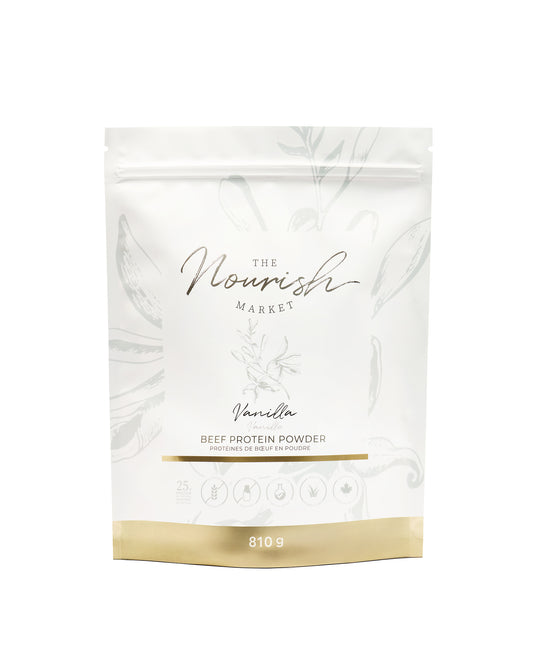Introduction
Protein powder has cemented its role as a dietary essential, embraced by fitness enthusiasts, athletes, and those committed to healthier living. Offering a convenient route to elevate daily protein intake, stimulate muscle growth, and expedite recovery, protein powders abound in the market. Nevertheless, not all protein powders are created equal. The key to making an informed choice lies in meticulously examining the ingredients listed on the label. In this comprehensive guide, we will delve deeply into the critical ingredients to seek when purchasing protein powder. We will also shed light on why opting for a protein powder with a concise selection of high-quality elements is a smart and health-conscious decision, while being cautious about alternatives like pea, rice, casein, and soy protein powders.
-
Protein Source: The Foundation of Quality
The cornerstone of any protein powder is, undoubtedly, the protein source. Understanding the source of your protein is paramount to making an informed choice. While a variety of protein sources are available, some have distinct drawbacks:
a. Pea Protein: While pea protein is plant-based and suitable for vegans and vegetarians, it may lack some essential amino acids, particularly methionine. It's often considered an incomplete protein source.
b. Rice Protein: Like pea protein, rice protein is plant-based but may also be deficient in certain essential amino acids. It's less bioavailable than animal-based protein sources and may not be as effective for muscle growth and recovery.
c. Casein Protein: Casein, a dairy-derived protein, is slow-digesting, making it suitable for nighttime use. However, it may not be the best choice for those with lactose intolerance or dairy allergies.
d. Soy Protein: While soy protein is a complete plant-based protein source, it has garnered controversy due to concerns about phytoestrogens and potential hormonal effects. Some individuals also have soy allergies.
As an alternative, look for protein powders that use these clean sources instead:
a. Grass-Fed Beef Protein Isolate: An exceptional choice for those seeking high-quality protein. Derived from grass-fed cows, this protein source offers an abundance of essential amino acids, particularly branched-chain amino acids (BCAAs), vital for muscle growth and recovery.
b. Hydrolyzed Beef Collagen: Collagen, a structural protein found in skin, bones, and connective tissues, is also a valuable protein source. Hydrolyzed beef collagen provides a unique set of amino acids, including proline and glycine, which not only support muscle recovery but also benefit joint and skin health.
-
Minimalism is Key: Streamlined Ingredient Lists
A fundamental indicator of a high-quality protein powder is a minimalistic approach to ingredients. A shorter ingredient list is more likely to indicate a product focused on delivering pure protein without unnecessary additives. Be wary of protein powders festooned with an abundance of additives, fillers, and synthetic components.
-
Embrace Healthy Fats: A Boost from Nature
Certain protein powders incorporate fats and oils to enhance flavour and texture. However, it's essential that these fats are derived from natural sources. For instance, the inclusion of coconut oil powder adds flavour and offers a source of healthful fats, providing sustained energy and aiding in the absorption of fat-soluble vitamins.
-
Natural Sweeteners: Sweetness Without Compromise
The flavour of a protein powder significantly influences its palatability. Many products rely on artificial sweeteners like sucralose or aspartame, which may raise concerns regarding their health implications. A healthier alternative is opting for protein powders that employ natural sweeteners such as stevia leaf extract. Stevia provides sweetness without the potential drawbacks associated with artificial alternatives, making it a more health-conscious choice.
-
Emphasis on Natural Flavours: Real Taste, Real Ingredients
The term "natural flavours" may raise questions, as it can be somewhat ambiguous. However, in general, it signifies a superior option compared to artificial flavours. Natural flavours suggest that the flavouring agents are derived from real food sources, avoiding the use of synthetic additives.
Why Ingredients Matter
The ingredients within your chosen protein powder wield significant influence over its overall quality and impact on your health. Prioritizing specific ingredients is a wise and health-conscious choice, ensuring you receive the full nutritional benefits of your protein supplement.
-
Premium Protein Sources: Grass-fed beef protein isolate and hydrolyzed beef collagen are exceptional protein sources, offering not only high protein content but also a rich profile of essential amino acids. These amino acids are crucial for muscle growth, recovery, and overall health.
-
Nutrient-Rich Fats: Coconut oil powder is a source of healthful fats that enhance both flavour and nutritional value. These fats provide sustained energy and support the absorption of fat-soluble vitamins like A, D, E, and K.
-
Natural Sweetness: Natural sweeteners like stevia leaf extract offer sweetness without the potential drawbacks of artificial sweeteners. They don't contribute to blood sugar spikes and are generally considered a more health-conscious choice.
-
Authentic Flavour: The use of natural flavours underscores a commitment to using real food-derived sources for taste. This approach maintains the product's integrity by avoiding synthetic additives that can raise concerns.




